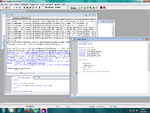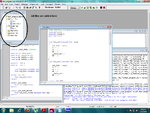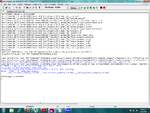xpress_embedo
Advanced Member level 4

I had write many functions for my micro-controller programs..
And now i want to place all the functions in a file that will be called by a header file...
For Example
My Function's are:-
Lcd_Init();
Lcd_Clear();
Lcd_Data(unsigned char x);
Lcd_String(unsigned char string[]);
These are my functions i want these to be called from the header file lcd.h
And i have approximately done all these things but my problem is that....
When i call my function Lcd_Init()
The Code size for the whole code is equal to, if have included all the function..
I haven't used any macros.... in the header file...
Can anyone tell me how to do this...
Without increasing the Code Size..
Regards
Arun Sharma
And now i want to place all the functions in a file that will be called by a header file...
For Example
My Function's are:-
Lcd_Init();
Lcd_Clear();
Lcd_Data(unsigned char x);
Lcd_String(unsigned char string[]);
These are my functions i want these to be called from the header file lcd.h
And i have approximately done all these things but my problem is that....
When i call my function Lcd_Init()
The Code size for the whole code is equal to, if have included all the function..
I haven't used any macros.... in the header file...
Can anyone tell me how to do this...
Without increasing the Code Size..
Regards
Arun Sharma




